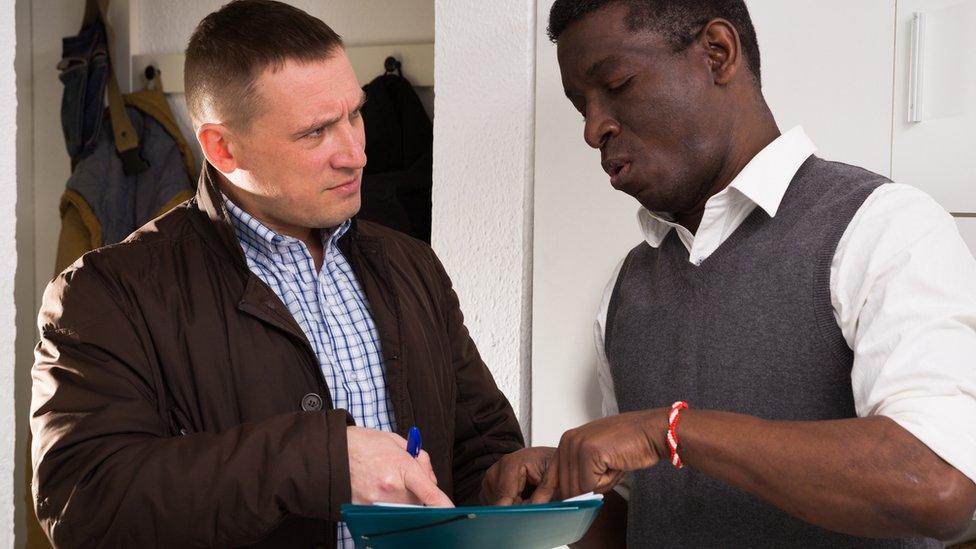Worries among tenants over deposit return
- Published

Nearly a fifth (18%) of tenants renting from private landlords say they have waited more than three months to get a deposit back, according to a survey.
Mortgage lender the Nationwide said 4% of those asked had a delay of more than six months.
A leading deposit protection scheme says the money should be returned within 10 days of the tenant requesting it after they move out of the property.
A landlords' group suggested disputes could slow down these refunds.
The Nationwide said that, on average, the waiting time for the return of a deposit was nearly two months.
Paul Wootton, Nationwide's director of specialist lending, said: "To ensure all private tenants have a better and more uniform experience, we need to consider more pragmatic solutions, including transferring deposits from one tenancy to the next, providing appropriate short-term loans or a guarantee."
The survey of more than 2,000 private tenants also found 35% of those asked had previously lost some or all of their tenancy deposit.
The survey found that 18 to 24-year-olds were particularly likely to say money had been deducted from their deposit to cover end of tenancy cleaning costs.

Check the cost of renting in your area
Contains OS data © Crown copyright and database rights 2018. Scroll down for methodology. Insufficient data is available for Northern Ireland.

The Tenant Deposit Scheme (TDS), one of the largest in the UK that ringfences or insures tenants' deposits, says that a landlord or letting agent should return the deposit within 10 calendar days of a tenant requesting it.
If this does not happen, the tenant should raise the issue with the landlord or letting agent first. After that, a complaint can be raised with the TDS, which will adjudicate independently and without charge to the tenant.
David Smith, policy director for the Residential Landlords' Association (RLA), said delays were mostly owing to disputes. In a small number of cases a landlord or tenant might argue that the case should go to court, further delaying the process. Such a move is not allowed in Scotland.
Any landlord who has failed to protect a deposit may have to pay a penalty to the tenant.
A tenant might not get the full amount of a deposit back if, for example, they owe rent, they have damaged the property or they have lost or broken items on the inventory.
Landlords should not take money for reasonable wear and tear, such as a carpet that has gradually worn out over time, or to fix repairs that were their responsibility.
- Published3 October 2018

- Published11 May 2018

- Published3 October 2018

